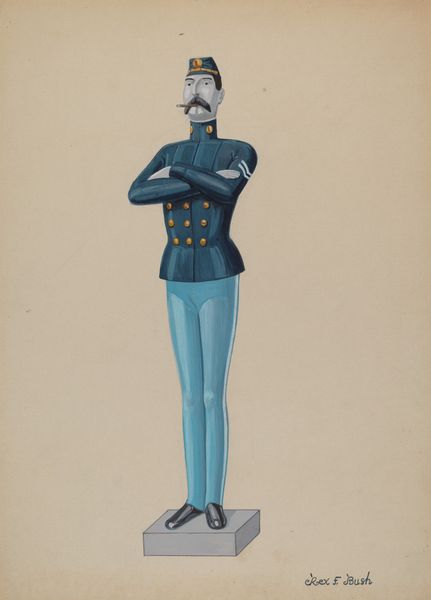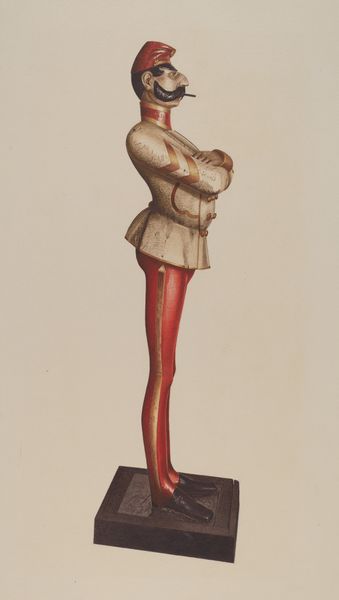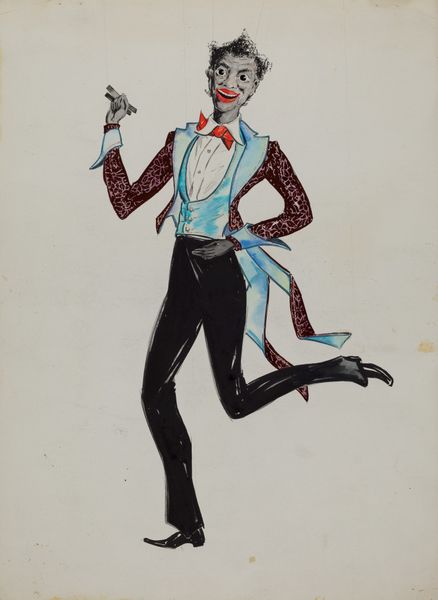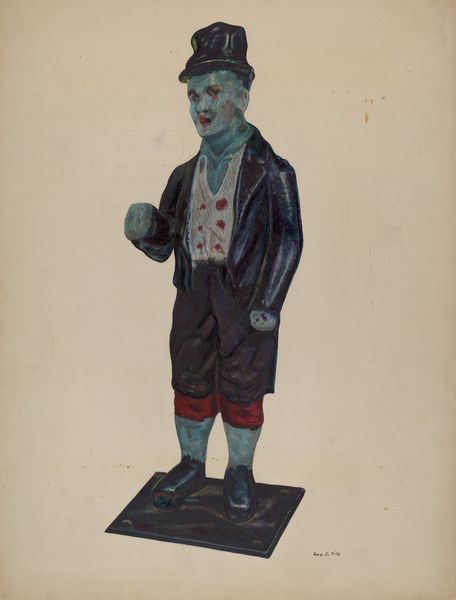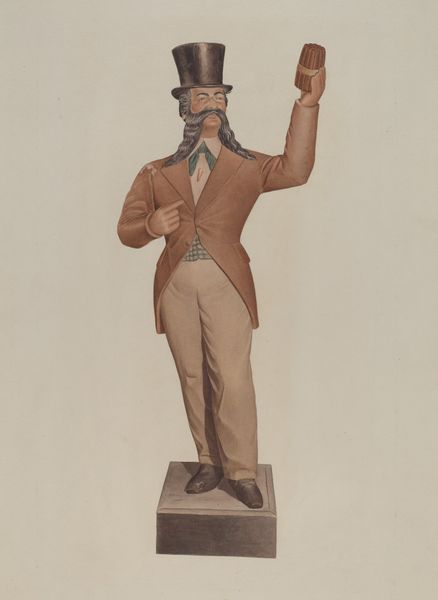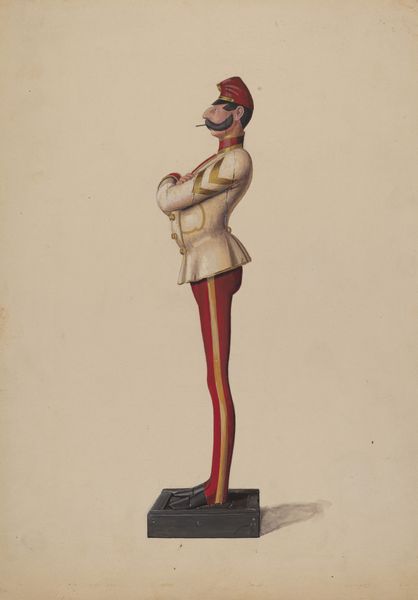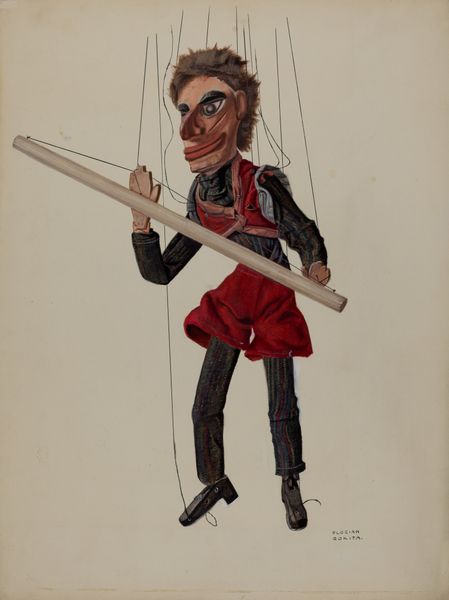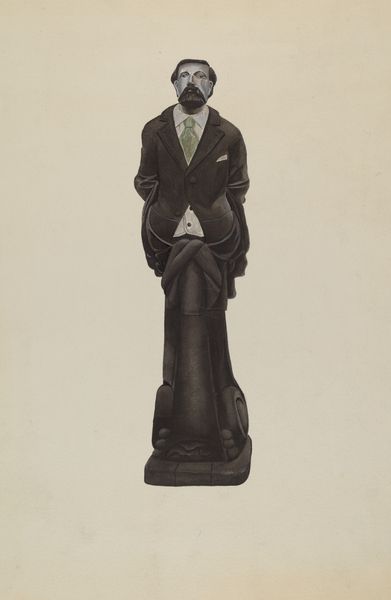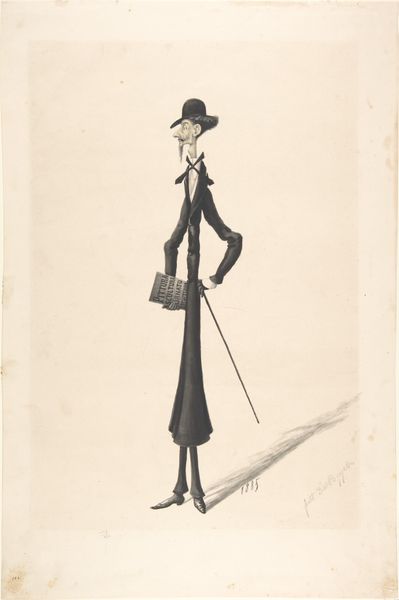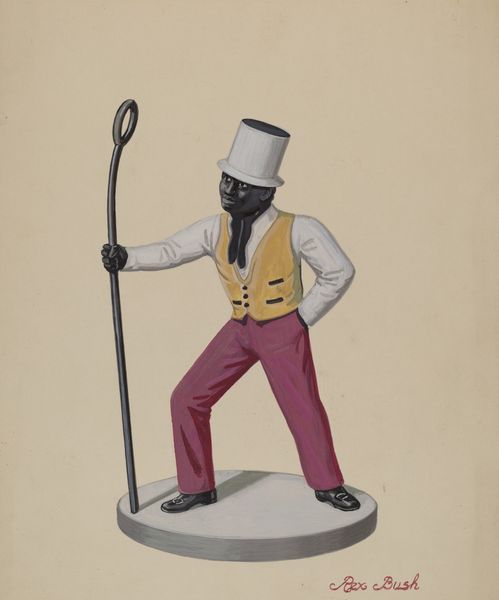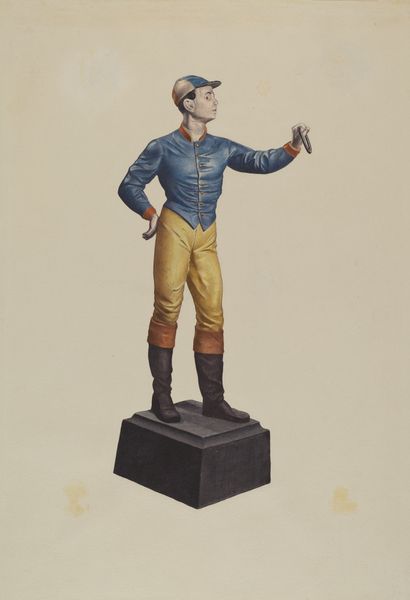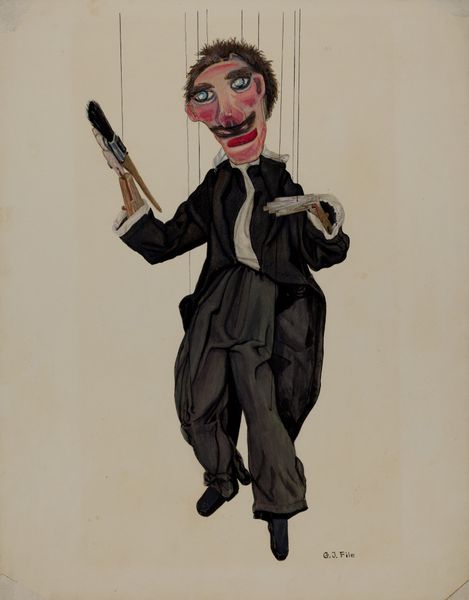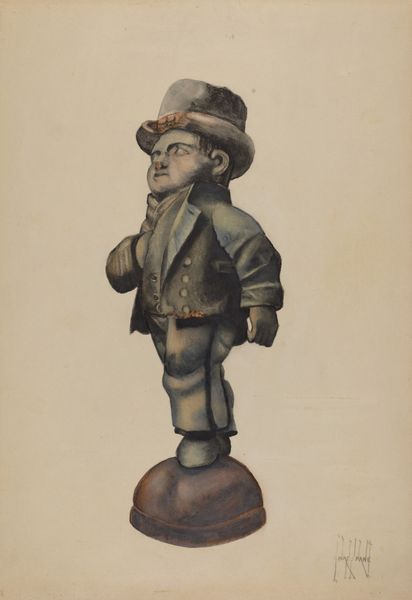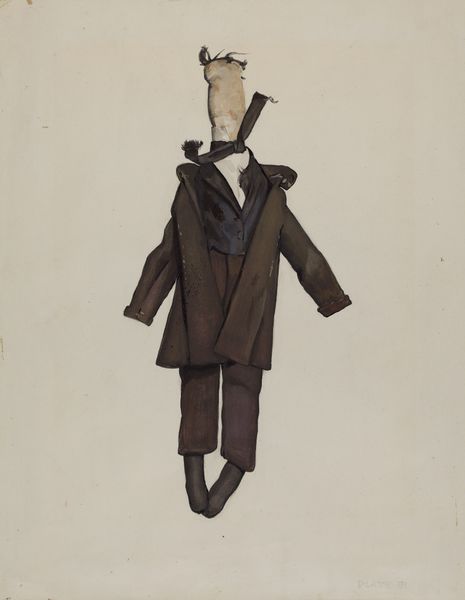
drawing, watercolor
#
portrait
#
drawing
#
caricature
#
caricature
#
figuration
#
watercolor
#
portrait drawing
#
watercolour illustration
#
genre-painting
#
regionalism
#
watercolor
Dimensions: overall: 35.7 x 24.7 cm (14 1/16 x 9 3/4 in.)
Copyright: National Gallery of Art: CC0 1.0
Curator: Well, isn't this a curious fellow? Eugene Croe rendered this watercolor drawing, "Cigar Store Soldier," circa 1936. The subject seems plucked right out of a bygone era. What are your first thoughts? Editor: Striking. My initial impression is one of slight unease, mixed with a sense of nostalgia. It's a bit unnerving and satirical. The exaggerated form immediately suggests a commentary on representation, doesn't it? Curator: Absolutely. Figures like this have a loaded history as symbols of the "noble savage," particularly when selling tobacco products. I immediately wonder how viewers during the Regionalism movement of the '30s understood that visual language, with its reliance on both respect and exploitation. Editor: Yes, and we must unpack the visual language that this embodies. This symbol represented commerce and empire, usually standing guard outside establishments selling cheap cigars. To appropriate this stereotype through art is incredibly provocative, especially given its initial racist deployment. Are we to laugh at or reflect on such objects? Curator: Perhaps both? Caricature is often a cruel mirror. Here, Croe utilizes the conventions of genre painting but infuses it with a regionalist sensibility, examining everyday American life. It echoes past associations tied to those figures, hinting at questions of identity and consumer culture within a society in transition. Editor: It definitely holds up a mirror to early advertising and cultural appropriation. Even today, we are seeing caricatures evolve on different products, subtly evoking figures that come at the expense of different ethnic backgrounds and races. Curator: So true! The power of symbolism is that it allows a few strokes of a brush to carry volumes. Thinking about it today is particularly potent because the debate about statues and how representation becomes an issue of oppression is right in front of us. Editor: It serves as a potent reminder of how visual tropes can both reflect and shape societal biases, prompting reflection on how far—or not—we’ve truly come. I wonder about Croe's perspective. What statement was the artist really attempting? Curator: Well, "Cigar Store Soldier" leaves us considering the symbols we encounter daily, the stories they tell, and what burdens they carry in our collective consciousness. Editor: Indeed, this piece is such a necessary, historical reflection about how art and commerce meet, carrying complicated intersections with the themes of empire and race. A lot to reflect on.
Comments
No comments
Be the first to comment and join the conversation on the ultimate creative platform.
